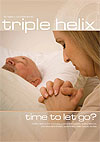The Third Lausanne Congress on World Evangelization (1) closed in Cape Town on 25 October with a ringing call to the church. The event, perhaps the widest and most diverse gathering of Christians ever held, drew 4,000 selected participants from 198 nations. Organisers extended its reach into over 650 GlobaLink sites in 91 countries, and attracted 100,000 unique visits from 185 countries to its website.
It was an extraordinary privilege to be involved. The overall theme was 'the whole church taking the whole gospel to the whole world' with two days on each of the three parts. We were treated to Bible exposition on Ephesians by some of the world's most gifted expositors; along with state of the art multimedia presentations, drama, and cutting-edge teaching on every possible aspect of world mission through plenaries, multiplex sessions and up to 40 different parallel seminars (dialogues) every day. The worship, led variably by a full piece orchestra, a contemporary worship band and once by 30 African drummers, was culturally diverse and awe-inspiring – a real foretaste of heaven. (2)
Professor John Wyatt and I jointly led a 'multiplex' session for over 400 leaders on 'Ethics, Emerging Technologies and the Human Future'. (3) It was well received and left us feeling the huge need throughout the global church to help leaders think through issues at the interface of Christianity and medicine, steadily impacting every nation.
A 'rest day' allowed scenic or historic tours, or viewing 'mission in action' projects. I visited an HIV/AIDS project called Living Hope (4) launched ten years ago by one moderate sized Baptist church. It employed 180 staff and 400 volunteers and was engaged in schools education, homeless work, and economic empowerment in addition to running a 20-bed hospice, a clinic and community nurse scheme. It was impressive. People were being converted, lives changed and rebuilt, and a community transformed. I was left wondering why my own church in the UK was not embodying the same sort of holistic ministry to our local community.
The First Lausanne Congress (1974) gave rise to The Lausanne Covenant, a new awareness of the number of unreached people groups; and a fresh discovery of the holistic nature of the biblical gospel and of Christian mission. The second in Manila (1989), spawned the Manila Manifesto and more than 300 strategic partnerships in world evangelisation.
The Cape Town Commitment (5) will be complete by the New Year. Its first part is a Trinitarian statement, fashioned in the language of love, and is already available. The second will call for action on critical issues facing the church over the next ten years.
I was struck most powerfully by: testimonies of God's faithfulness through immense suffering by delegates from Rwanda, Nigeria and North Korea; explosive church growth in the Global South; the emphasis on the 'integral gospel' – preaching, mercy and justice as the church's mission; the exponential progress in Bible translation and in taking the Gospel to every people group; and Chris Wright's challenge that the major obstacle faced by the Gospel is not other faiths, persecution or resistant cultures, but rather the sin and idolatry of Christians.
I leave you with a quote from Richard Stearns' (6) address on 'the hole in our gospel'. His challenge to the American church about its attitude to wealth, poverty and power applies equally to us: (7)
I believe that the (American) church stands at a crossroads. The world we live in is under siege. Three billion are desperately poor, one billion hungry, millions are trafficked in human slavery. Ten million children die needlessly every year. Wars and conflicts are wreaking havoc. Pandemic diseases are spreading and ethnic conflict is flaming. Terrorism is growing. Most of our brothers and sisters in the developing world live in grinding poverty. And in the midst of this stands the church (in America) with resources, knowledge and tools unequalled in the history of our faith.
I believe we stand on the brink of a defining moment and have a choice to make. When historians look back… will they say that these authentic Christians rose up courageously and responded to the tide of human suffering to comfort the afflicted and douse the flames of hatred? Will they speak of an unprecedented outpouring of generosity to meet the needs of the world's poor? Will they speak of the moral leadership and compelling vision of our leaders? Will they write that this, the beginning of the 21st century, was the churches' finest hour?
Or will they look back and see a church too comfortable and insulated from the pain of the rest of the world, empty of compassion and devoid of deeds? Will they write about a people who stood by and watched… of Christians who lived in luxury and self indulgence while millions died….
Sometimes I dream and I ask 'What if?' What if we actually took this Gospel seriously? Could we, might we, actually be able to change the world?
































